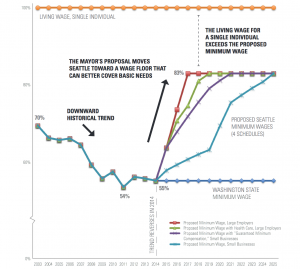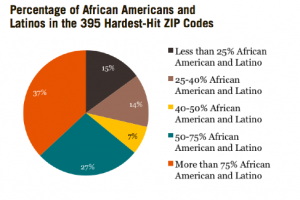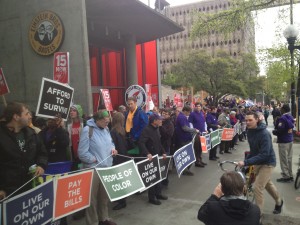Tony Sandkamp, owner of Sandkamp Woodworks in New Jersey, is a supporter of paid sick days for workers – because it makes sense for employees, and it makes sense for his company’s bottom line. Sandkamp, a Main Street Alliance leader, recently joined a panel of business leaders at the New York Regional Forum on Working Families, organized by the White House and the Department of Labor.
Part of the discussion focused on paid sick days. While many employees take it for granted that their employer will still pay them if they are forced to stay home sick a few days each year,many more workers are not given the option. If employees don’t come to work, they aren’t paid. Even scarier, if they miss work because of sickness, they risk losing their job.
“It’s ironic that I am advocating for paid sick leave, given that I think the last sick day I personally took was when I broke my leg in the third grade,” said Sandkamp. “When I worked for the airlines back in my twenties, I earned the ‘perfect attendance’ award for three consecutive years.
“But paid sick days just makes common sense – even for me and my small business,” said Sandkamp.
He has owned a custom woodworking business in Jersey City for more than 20 years. Sandkamp makes furniture and cabinets that are unique and one of kind – any mistakes can be very costly.
“A few years back, we were working on a cabinet, and the entire piece was coming from one tree, which required us to carefully match the grains of wood. It was very intricate work, and required a lot of concentration.
“One of my employees was cutting the veneers and cut them the wrong way. It was all the veneer we had left. He came into my office after he made the mistake. He had obviously been crying. He was a man who took great pride in his work,” said Sandkamp.
“What I didn’t know was that he had a fever. It was the flu season. But he came to work anyway, because he needed the pay. This man was the sole provider for his family. We started the cabinet over again, and lost a month’s work.
My business bottom line is not only about dollars – it’s about keeping my employees healthy and happy.
“For me, paid sick days is a non-issue since it will improve my employee retention,” said Sandkamp. “The cost of training that employee and replacing them is many times greater. I need people to work at their best every day. If they are sick and feel financial pressure to come into work, they are much more likely to make a mistake or potentially hurt themselves.”
The momentum is growing nationwide for economy-boosting policies like paid sick days. Laws requiring paid sick days have been passed in New York City, Newark, Jersey City, Portland, Washington, D.C., Seattle, and San Francisco. Small business owners across the country are getting involved at the local level to help craft and support laws that are good for small businesses, good for workers, and good for the local economy.
As we work together to build cabinets, paid sick days help build common ground, which makes my business stronger, and my employees’ lives better,” said Sandkamp.
Check out a video of the panel discussion here.
 A new report, “Reversing the Trend” by the Alliance for a Just Society, finds that Mayor Ed Murray’s minimum wage proposal reverses a minimum wage trend that is increasingly unable to meet the basic living needs of workers. Seattle’s proposed $15 minimum wage would be the highest in the country.
A new report, “Reversing the Trend” by the Alliance for a Just Society, finds that Mayor Ed Murray’s minimum wage proposal reverses a minimum wage trend that is increasingly unable to meet the basic living needs of workers. Seattle’s proposed $15 minimum wage would be the highest in the country. Continue reading “Reversing the Trend: A Longitudinal Study of Living Wage and Minimum Wage”
Continue reading “Reversing the Trend: A Longitudinal Study of Living Wage and Minimum Wage”




